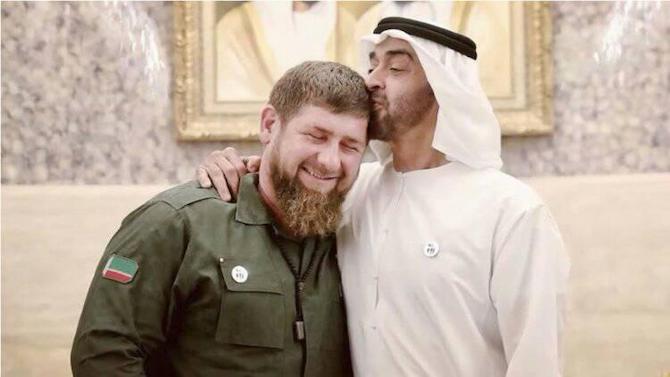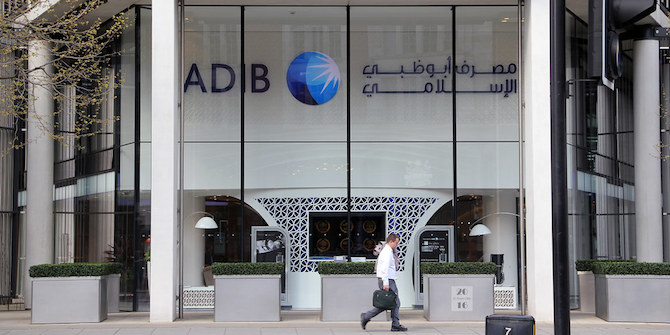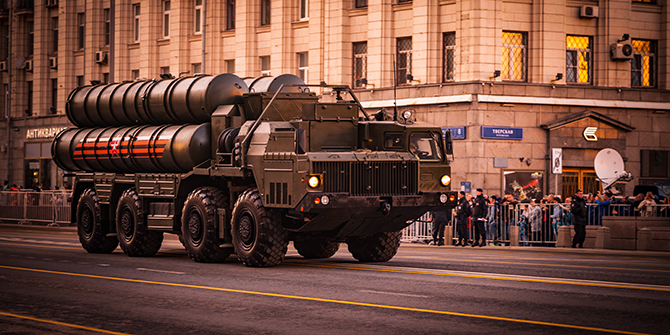by Diana Galeeva

Under Putin’s leadership, Russia returned to the Middle East using a ‘pragmatic approach’, which includes balancing adversaries. At the beginning of the Gulf Crisis it ‘pursued an even-handed approach’, offering to mediate between Qatar and the Anti-Terror Quartet (Saudi Arabia, the UAE, Bahrain, Egypt). As the crisis continues Russia has developed its policies on balancing between both blocs, with each being important sources of foreign investment, a market for Russian weapons, and potential allies in oil and gas sectors. The recent engagements prove this as well. Putin’s official visit to Saudi Arabia and the United Arab Emirates on 14–15 October 2019, and the Russia-Africa Summit, which was co-chaired by Russian President Putin and Egyptian counterpart Abdel Fattah El-Sisi on 23–24 October, was geared towards deepening relations with the Quartet. At the same time, on 18 October, a working visit of Russia’s Deputy Foreign Minister Boghanov to Doha further developed relations with Qatari officials.
Russian Muslims: ‘Forgotten’ players
This balancing adversaries policy was not solely developed by the federal government, but also by the Russian Muslim republics. The role Russian Muslims play in balancing these relations is often overlooked despite a shared Islamic identity potentially opening doors to close relations between Russia and the GCC. Chechnya’s relations with the Anti-Terror Quartet, and Ingushetia’s with Qatar, demonstrate this potential.
Chechen case
Chechen leader Ramzan Kadyrov is a prominent supporter of Putin’s policies. Due to his active position in building close relations with Middle Eastern states, especially in the Gulf, observers view him as the main representative of Russian Muslims in the region. While heads of other republics also play important roles in building bilateral relations with the Middle East, undoubtedly Kadyrov’s personality assists in Russia’s close relations with the ‘brothers’, as Kadyrov refers to the Anti-Terror Quartet leadership.
Shared Islamic identity is Chechnya’s key political card for building bilateral relations. In 2018, Kadyrov performed the Hajj in Saudi Arabia, which also served as an opportunity to meet with the Saudi leadership to discuss deepening economic, cultural, and scientific relations. Additionally, the Chechen leadership strongly supports the stated aim of promoting ‘moderate Islam’ in the Islamic world under the leadership of the Anti-Terror Quartet, especially Saudi Arabia and the UAE. In 2019, Kadyrov gave a speech supporting moderate Islam under the patronage of King Salman.
Chechnya has close bilateral relations with the UAE, another key member of this bloc, with interests based on economic cooperation and shared Islamic identity. Reportedly, UAE investments were used to build the Grozny Mall, and the tallest building in Russia and Europe, the MFC Akhmat Tower, managed by Emirati hotel operator, Address Hotels + Resorts.
Ingushetia’s strategy in the Gulf
While Kadyrov defends Saudi Arabia and the UAE’s push for moderate Islam, the former leader of Ingushetia and recently appointed deputy defence minister of Russia, Yunus-bek Yevkurov, has built close diplomatic relations with Qatar and its religious clerics. In February 2018, during an official visit to Qatar, Yevkurov visited Ali Al-Qaradaghi, the secretary general of the International Union of Muslim Scholars (headed by Sheikh Yusuf Al-Qaradawi, a spiritual leader of the Muslim Brotherhood, an organisation officially banned in Russia). Yevkurov’s Instagram account reported: ‘I expressed gratitude to the Sheikh for his efforts to consolidate Muslim society, for his contribution to strengthening stability in our region …’. These words suggest that Ingushetia’s leader supports an Islamist-friendly bloc, consisting of Qatar and other states, such as Turkey and Iran, united in opposition to ‘moderate Islam’. None of this is surprising as it allows Russia to balance both sides in the ongoing Gulf Crisis.
Reportedly, Yevkurov is a reliable intermediary for the emirate’s advancements of economic interests in Ingushetia, and from there, the rest of Russia. Qatar has invested in Ingushetia since 2014, when Russia’s economic crisis began. In addition to energy facilities, Qatar promised to invest in a wide range of sectors, including the automotive industry, tourism, and technology parks. Qatari investors are set to help Ingushetia authorities construct an Islamic complex in Magas – the Republic’s capital – which would be the largest religious, cultural and educational centre in the country. As both cases demonstrate, following the Russian federal government policy to balance adversaries in the ongoing Gulf Crisis, Russian Muslims are important in keeping this balance.







Any idea if Tartarstan plays a similar or competing role in the Gulf, compared to the leaders of Chechnya and Ingushetia?